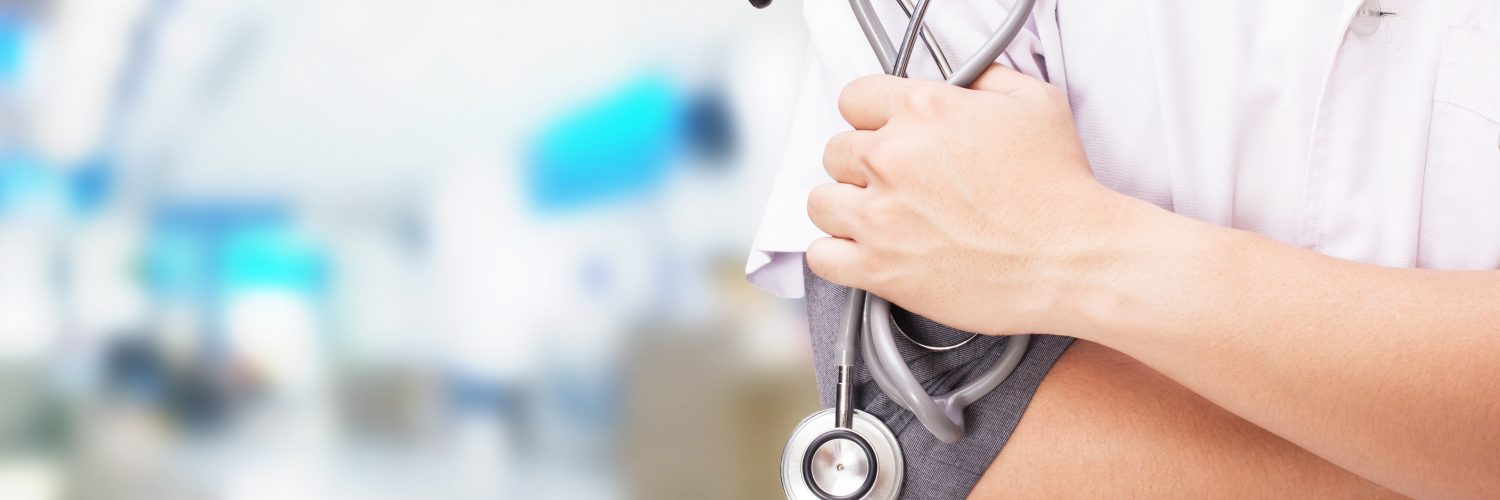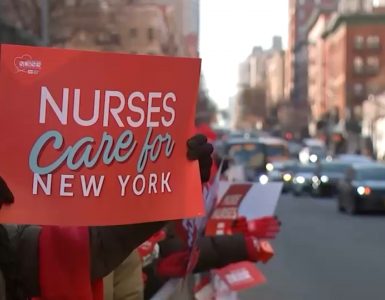In Toras haAdam (Inyan haSakana), the Ramban discusses a physician’s exemption from liability for errors that occur during medical treatment:
[The exemption] was only granted to a Baki (an expert) who knows the wisdom and the practice [of medicine] and where there is no greater expert. However, one who is not familiar with this wisdom should refrain from involvement with it. Likewise, if there are greater experts than him, it is forbidden for him to be involved with it.
In other words, two conditions must be met to have protection from liability for errors:
- The physician must be a Baki who practices according to accepted medical knowledge. The Ramban stresses that he must be familiar with both the “Chochma” and the “Melacha”, presumably referring to both theoretical and practical medical knowledge (Pele Yo’etz, Erech “Rofei”).
- There must be no more expert physician than him (though he may follow the orders of more experienced physicians).
The Shulchan Aruch rules similarly :
The Torah grants permission to doctors to heal, and it is a Mitzva included in Pikuach Nefesh… However, a person should not occupy himself with Refua unless he is a Baki and there is nobody more expert than him, for if not, he is a spiller of blood.
The Tur (Y.D. 336:1) quotes this Halacha and explains more expansively:
Only if he is exceedingly careful, as one would be with Dinei Nefashos… However, a person should not be involved in medical treatment unless he is knowledgeable and familiar with the field and its practices, and there is no senior [or more experienced] physician. But someone who is not familiar with the nature of this work, and, similarly, if there is somebody senior to him, should not be involved with it at all. This is a Kal v’Chomer from all other laws and rulings of the Torah. How can a person rule on matters of possible life and death when there is someone senior to them present?
Defining a Baki
What constitutes a “Baki”? The Aruch haShulchan explains (ibid.):
However, he is forbidden to engage in Refua unless he is a Baki and has permission from the Beis Din (to practice). Today, he must be licensed by the government to treat patients.
In other words, during the times of the Sanhedrin, the Dayanim would grant a license to a physician to practice medicine. (The Dayanim were familiar with medical practice – see Rambam Hilchos Sanhedrin 2:1). Today, when we have no Sanhedrin, the Beis Din in this matter is the government. (The Divrei Shaul Y.D. 336, and Shu”t Ma’asei Avraham Y.D. 55 similarly rule that today a license from the authorities is a Halachic obligation.)
The Tzitz Eliezer (5, Ramat Rachel, 22) comments on the Aruch haShulchan’s contention:
We could object to this. The Tur and Shulchan Aruch, as well as the Toras haAdam of the Ramban, do not make this a condition of practicing [Refua]. Practicing [Refua] is only conditioned upon being a Baki… nowhere do they make the practice [of Refua] require approval from Beis Din. It is only in their conclusion regarding causing harm [to a patient] that they make his exemption from liability dependent upon his permission from Beis Din. All of this clearly implies that permission from Beis Din is not required to practice [Refua], as long as one is a Baki…
The rationale is that permission from the Beis Din does not constitute certification of his expertise, as the Beis Din has no role in that matter. In most cases, they know very little of Refua, whether theoretical or practical. Instead, it serves as an official acceptance of this physician to practice medicine for the community, based on his knowledge and expertise, for better or worse. Following that, he has permission to practice and is not held financially responsible for his mistakes.
In other words, a license is granted by a medical institution. Beis Din simply affirm that he is a practicing physician and is accepted by the community.
The Tzitz Eliezer also cites the Sefer Beis Hillel, who contends that academic certification (a doctorate in medicine) is sufficient, or even if the community accepted them as an expert in the absence of formal certification.
However, the Aruch haShulchan appears to hold that one also requires a medical license in the locale. In each country, there are strict rules prohibiting physicians from practicing without a local license, even if they are qualified and hold a license in another jurisdiction. This is because the standards for medical care vary depending on location and the specific circumstances of each country.
The Shulchan Gavoa’h (336:7) rules that today the Beis Din must verify the credentials of physicians who come from outside the city, even when they have letters or certification from reputable physicians.
The Tzitz Eliezer also discusses pharmacists:
The same applies to pharmacists who are familiar with the names of medications but do not adequately understand their nature or effectiveness. They must not administer medicines to patients based on their superficial knowledge. In addition, they do not examine the patient and cannot accurately determine his ailments. Likewise, they do not know how to determine the proper dosage, and often medicines become harmful when they are not taken in the proper measure.
What we can consider in terms of leniency are well-known remedies for headaches, diarrhea, and similar conditions, which are publicly sold with the knowledge of experts and without objection. For the same reason, there is also room to permit other medicines for which the government’s health ministry has granted advance permission for pharmacists to sell without a prescription from a licensed physician. This is considered a standing certification from expert physicians that these medicines will not harm those who take them, even if they are not suited to them.
The Nishmas Avraham adds (2, Y.D. 336:1) that a layman should certainly not advise others regarding medications.
When a More Senior Physician Is Present
The Gra explains (Biur haGra, ibid.) that the basis for the Issur to practice Refua when a more senior physician is present is, “a Kal vaChomer from all other Halachos and rulings in the Torah, where it is forbidden [to rule] unless in these circumstances.”
The Gemara states (Avoda Zara 7a):
If there are two (Talmidei Chachamim), one of whom rules Tamei and the other Tahor, one rules Asur and the other Mutar; if one was greater than the other in wisdom and in number, follow him.
Clearly, in matters of Halacha, we follow the ruling of the greater Chacham, whether he is ruling leniently or strictly. If so, this should certainly apply to issues of life and death; the senior physician’s position should be followed. Failing to do so is considered “spilling blood”.
The Gra also makes mention of the Mishna’s statement, “The best of physicians go to Gehinnom” (Kiddushin 4:14). Apparently, he understood the Mishna as referring to those who do not consult with more senior physicians.
In light of the above, the modern practice of junior physicians treating patients when senior physicians are present, both in hospitals and outpatient settings, warrants explanation.
R’ Yitzchak Zilberstein Shlit”a (Shabbos Shabason, footnote 75, citing Rav Elyashiv zt”l) explains that junior physicians can perform straightforward, routine treatments, even if a senior physician is theoretically available. The issue arises only when comparisons to other cases are required, which requires greater experience and should be left to more senior physicians if they are nearby. The same is true of more complex diagnoses.
Interestingly, regarding Yom Kippur, we do take a more junior physician’s view into account, even in the presence of a more experienced physician. Thus, the Rema rules (O.C. 618:2) that if a junior physician contends that a patient cannot fast and a senior physician disagrees, we allow the patient to eat. Later, the Rema also rules (ibid. 6): “If the patient is greatly weakened, to the extent that the majority of people would view him as endangered, we feed him.” In short, we do not give greater weight to an expert physician’s assessment of the patient’s ability to fast.
Rav Elyashiv also stated (Sefer Zikaron for R’ Betzalel Zolti, Moriya 5747; the Tzitz Eliezer similarly states) that today, where physicians study for many years and are highly qualified, there is often little difference in many cases between more senior and less senior practitioners. Therefore, there is no reason for more junior physicians to refrain from providing treatment, even if a more senior physician is present. Further, many patients are unable to make appointments with the most senior physicians. Therefore, in many cases, we do not consider a senior physician to be “present”, even if he is in the vicinity.
R’ Moshe Feinstein zt”l notes (Igros Moshe C.M. 2:74:8) that, in some cases, a more junior doctor may make a more accurate diagnosis than a senior one. In addition, Chaza”l inform us that “a person does not merit Refua from every doctor” (Shulchan Aruch Y.D. 336:1). Therefore, in urgent cases, one should rely on the available physician and not delay until a more senior physician is available. R’ Moshe also ruled (cited in Kovetz Halacha u’Refua 1, p130) that a non-Torah-observant expert should be chosen over a less experienced Torah-observant physician.













Add comment